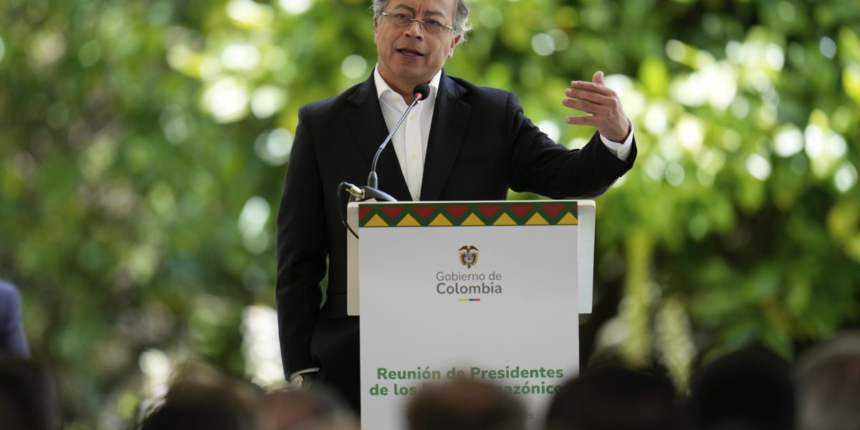Even as it determined that Colombia had failed to comply with its international counternarcotics obligations, the Trump administration issued a waiver of sanctions that would have triggered major aid cuts, citing vital U.S. national interests.
Nonetheless, it is a major step against one of the United States’ staunchest allies in Latin America, which analysts said could hurt the economy and further hamper efforts to restore security in the countryside.
President Gustavo Petro, who has said on several occasions that whisky kills more people than cocaine, lamented Trump’s decision during a televised cabinet meeting Monday, saying Colombia was penalized after sacrificing the lives of “dozens of policemen, soldiers and regular citizens, trying to stop cocaine” from reaching the United States.
“What we have been doing is not really relevant to the Colombian people,” he said of the nation’s antidrug efforts. “It’s to stop North American society from smearing its noses” in cocaine.
The U.S. last added Colombia to the list, through a process known as decertification, in 1997 when the country’s cartels — through threats of violence and money — had poisoned much of the nation’s institutions.
“Decertification is a blunt tool and a huge irritant in bilateral relations that goes well beyond drug issues and makes cooperation far harder in any number of areas,” said Adam Isacson, a security researcher at the Washington Office on Latin America. “That’s why it’s so rarely used.”
That cooperation, a rare U.S. foreign policy success in Latin America, started to unravel following the suspension a decade ago of aerial eradication of coca fields with glyphosate. It followed a Colombia high court ruling that determined the U.S.-funded program was potentially harmful to the environment and farmers.
A 2016 peace accord with the Revolutionary Armed Forces of Colombia, the nation’s largest rebel group known as FARC, also committed Colombia to rolling back punitive policies likened to the U.S. spraying of Agent Orange during the Vietnam War in favor of state building, rural development and voluntary crop substitution.
Along with production, drug seizures also have soared to 654 metric tons so far this year. Colombia seized a record 884 metric tons last year.
Petro, a former rebel himself, also has angered senior U.S. officials by denying American extradition requests as well as criticizing the Trump administration’s immigration crackdown and its efforts to combat drug trafficking in neighboring Venezuela.
“The failure of Colombia to meet its drug control obligations over the past year rests solely with its political leadership,” Trump said in a presidential memo submitted to Congress. “I will consider changing this designation if Colombia’s government takes more aggressive action to eradicate coca and reduce cocaine production and trafficking, as well as hold those producing, trafficking, and benefiting from the production of cocaine responsible, including through improved cooperation with the United States to bring the leaders of Colombian criminal organizations to justice.”
Under U.S. law, the president annually must identify countries that have failed to meet their obligations under international counternarcotics agreements during the previous 12 months.
In addition to Colombia, the Trump administration listed four other countries — Afghanistan, Bolivia, Burma and Venezuela — as among 23 major drug transit or drug-production countries that have failed to meet their international obligations. With the exception of Afghanistan, the White House determined that U.S. assistance to those countries was vital to national interests and therefore they would be spared any potential sanctions.
“In Venezuela, the criminal regime of indicted drug trafficker Nicolás Maduro leads one of the largest cocaine trafficking networks in the world, and the United States will continue to seek to bring Maduro and other members of his complicit regime to justice for their crimes,” Trump’s designation said. “We will also target Venezuelan foreign terrorist organizations such as Tren de Aragua and purge them from our country.”
___
Suarez reported from Bogota, Colombia. AP writer Manuel Rueda contributed to this report from Bogota.









